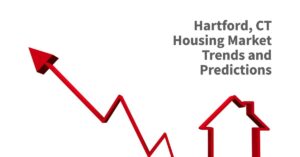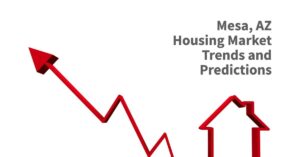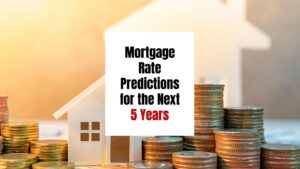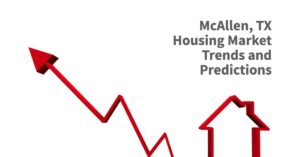The Queen City on the Rise – that's what many are calling Hartford, Connecticut these days. And with good reason. The city's revitalization continues to draw residents seeking a vibrant urban core with a touch of historic charm. But what about the housing market? The Hartford, CT housing market is currently experiencing a mix of factors, leading to a somewhat competitive environment with a median home sale price of $300K, up 17.2% year-over-year. Let's dive into the key details and trends shaping the market this year.
Hartford Housing Market Trends:
Home Sales
According to Redfin, in October 2024, the number of homes sold in Hartford was 46, which represents a slight dip of 9.8% compared to the same period last year. While the number of homes sold decreased, it's important to consider that the market is still active, albeit at a slightly slower pace. The shift suggests that perhaps buyers are becoming more selective due to rising home prices and other economic factors.
I've been closely following the Hartford real estate market over the past few years, and this trend reflects the national picture to some extent. Increased interest rates and economic uncertainty can lead to buyers pausing before making a large investment. However, it's still a healthy market, as evidenced by the median sale price increases.
Home Prices
As mentioned, the median sale price of homes in Hartford was $300,000 in October 2024. That's a significant 17.2% jump from the previous year. The median price per square foot has also increased to $133, a 7.3% increase. This upward trend is a notable aspect of the Hartford housing market right now.
My personal observation is that the rise in home prices is driven by a combination of factors. Low inventory is definitely a major player. We've seen a shortage of homes for sale for a while now, creating competition among buyers. Also, factors like low interest rates in the past, which fueled demand, are now tapering off but still have an impact. Plus, Hartford's appeal as a location continues to attract buyers, pushing prices higher.
Housing Supply
The availability of homes for sale is a key driver in any housing market, and the Hartford housing market is no exception. While the exact numbers for available homes are not available from the data provided, the fact that the number of homes sold decreased while the prices increased shows that the inventory is likely still low. This low inventory is a significant factor contributing to the upward pressure on home prices.
During my interactions with buyers and sellers in the Hartford area, I've noticed that many homeowners are hesitant to list their properties because they worry about finding a new home in this competitive environment. This is a common phenomenon that has impacted housing supply nationally. Also, new construction hasn't kept pace with demand, leading to an ongoing shortage.
Market Trends
The Hartford housing market currently presents a mixed bag of trends. On one hand, we see an increase in home prices and a slight drop in the number of homes sold, suggesting a potential shift in momentum. On the other hand, the market is still active, and homes are still selling, albeit at a slightly slower pace compared to last year.
Some other important trends shaping the Hartford real estate market are:
- Homes are selling above the list price: The average sale-to-list price ratio is 102.6%, indicating that many homes are selling for more than the asking price. This trend further highlights the competitiveness of the market.
- Homes are selling quickly: Although the median days on market has increased to 41 days from 26 days in the last year, the fact that so many homes are selling for above list price shows that they are still moving fast. Homes with desirable features or located in popular neighborhoods likely move even faster.
- Migration patterns are influencing the market: A growing number of individuals are looking to relocate to Hartford from other major cities, including New York, Philadelphia, and Los Angeles. This influx of potential buyers is putting further pressure on the housing market.
Is It a Buyer's or Seller's Housing Market?
The Hartford housing market can be characterized as a somewhat competitive market. While it may not be as intensely competitive as it was in the past, it's not a buyer's market either. The data clearly shows that sellers still hold an advantage due to the low housing inventory and the fact that many homes are selling above the list price. It's a good time for sellers who are willing to let go of their property.
Buyers, on the other hand, should be prepared to act swiftly and potentially offer above the asking price to secure their desired home. A strong understanding of the market and working with a knowledgeable real estate agent can help buyers navigate the challenges and successfully secure their dream home in Hartford.
Are Home Prices Dropping?
Based on the current data, it doesn't seem like home prices are dropping in Hartford, CT. We are seeing a rise in the median sales price, and the sale-to-list price ratio remains above 100%. While it's impossible to predict the future with complete certainty, the current trends suggest that home prices may continue to climb, or at the very least, stay steady for the remainder of 2024.
I am keeping a close watch on factors that could influence future price changes. Any changes in interest rates, a significant shift in the local economy, and a substantial increase in new home construction could potentially impact the trend. It's wise for buyers and sellers to keep themselves updated on these factors.
Table of Key Hartford, CT Housing Market Statistics (October 2024)
| Statistic | Value | Year-Over-Year Change |
|---|---|---|
| Median Sale Price | $300,000 | +17.2% |
| Number of Homes Sold | 46 | -9.8% |
| Median Days on Market | 41 days | +15% |
| Sale-to-List Price | 102.6% | -0.45 pt |
| Homes Sold Above List | 67.4% | +12.5 pt |
| Homes with Price Drops | 21.6% | +1.7 pt |
Hartford, CT Housing Market Forecast 2025-2026
Thinking about buying or selling a home in Hartford? The Hartford housing market forecast suggests a positive outlook for the coming months, with home value appreciation projected to continue. Specifically, the Zillow forecast for November 2024 shows a predicted increase of 0.3%, which then rises to 0.7% by January 2025 and further to 4.2% by October 2025. This suggests a generally upward trend in home values over the next year. Let's delve deeper into the details of this forecast and its implications for the Hartford real estate scene.
Forecast for Hartford Home Values
I've been carefully watching real estate market trends for a long time now, and Zillow's forecasts are quite helpful when you want a general idea of the future. Here is a simplified table of the Zillow data for easier understanding:
| Date | Predicted Home Value Appreciation (%) |
|---|---|
| November 2024 | 0.3 |
| January 2025 | 0.7 |
| October 2025 | 4.2 |
Note: These values represent predicted changes in home prices compared to the base date (October 31, 2024).
These are positive signals for the Hartford housing market. The steady growth predicted in this forecast suggests that home prices are likely to rise in the upcoming months and potentially be a good investment for buyers.
Hartford Housing Market vs. Other Connecticut Regions
It's always good to see how a market compares to others. Here are the predicted home value appreciation rates for some other regions in Connecticut, again from Zillow.
| Region | Predicted Home Value Appreciation in October 2025 (%) |
|---|---|
| Bridgeport | 3.1 |
| New Haven | 4.8 |
| Norwich | 4.8 |
| Torrington | 5.2 |
When we compare the projected numbers for the Hartford housing market to the other regions in Connecticut, it appears to be on a more gradual incline. While the other areas have higher projected increases, we can see a more moderate and sustained growth in Hartford.
Will Home Prices Drop in Hartford? Will it Crash?
It's a question I get asked a lot! Based on the available data, it doesn't seem that a crash is on the horizon for Hartford. The projected increases, although relatively modest compared to other areas, show a trend of growth, not a decline. While the real estate market can be unpredictable, it's unlikely that Hartford home prices will drop significantly in the near future. Of course, no one has a crystal ball, so always keep an eye on the market.
Possible Forecast for 2026
Predicting anything beyond the Zillow timeframe is difficult. However, in my personal opinion, as long as the economy remains generally stable, the Hartford housing market could continue to see moderate growth in 2026, possibly around 3-5%. Again, this is just my educated guess based on the current trends and historical data.
The Hartford housing market forecast suggests a stable and moderately growing real estate environment. If you are thinking about buying or selling, it's a great time to research and make informed decisions based on your own needs and priorities.
Is Hartford, Ct Expensive to Live?
Whether Hartford, CT is expensive to live in depends on what you're used to and what your priorities are. Here's a breakdown to help you decide:
The Good News: Relatively Affordable Housing
- Compared to some of its neighbors, Hartford boasts a median home price that's considered accessible. As of May 2024, the median listing price sits around $174,123 [sources like Zillow can be helpful here].
- This stability, coupled with a slight increase in available inventory, creates a welcome sigh of relief for first-time buyers. You might find more breathing room compared to fast-paced housing markets.
The Not-So-Bad News: Other Costs
- Utilities: Be prepared for slightly higher utility bills than the national average.
- Essentials: Groceries and clothing might cost a tad more than the national average.
Overall:
- Hartford offers a good balance between housing affordability and overall cost of living. It's generally cheaper than the national average.
Here are some things to consider:
- Your income: If you have a job that pays well in Hartford, the cost of living might feel reasonable.
- Your lifestyle: If you enjoy dining out and entertainment frequently, you might find these costs add up a bit more than in other areas.
- Your priorities: If affordable housing is your top concern, Hartford might be a good fit.
Final word:
Do your research on specific neighborhoods and factor in your lifestyle to get a clearer picture of affordability in Hartford.











